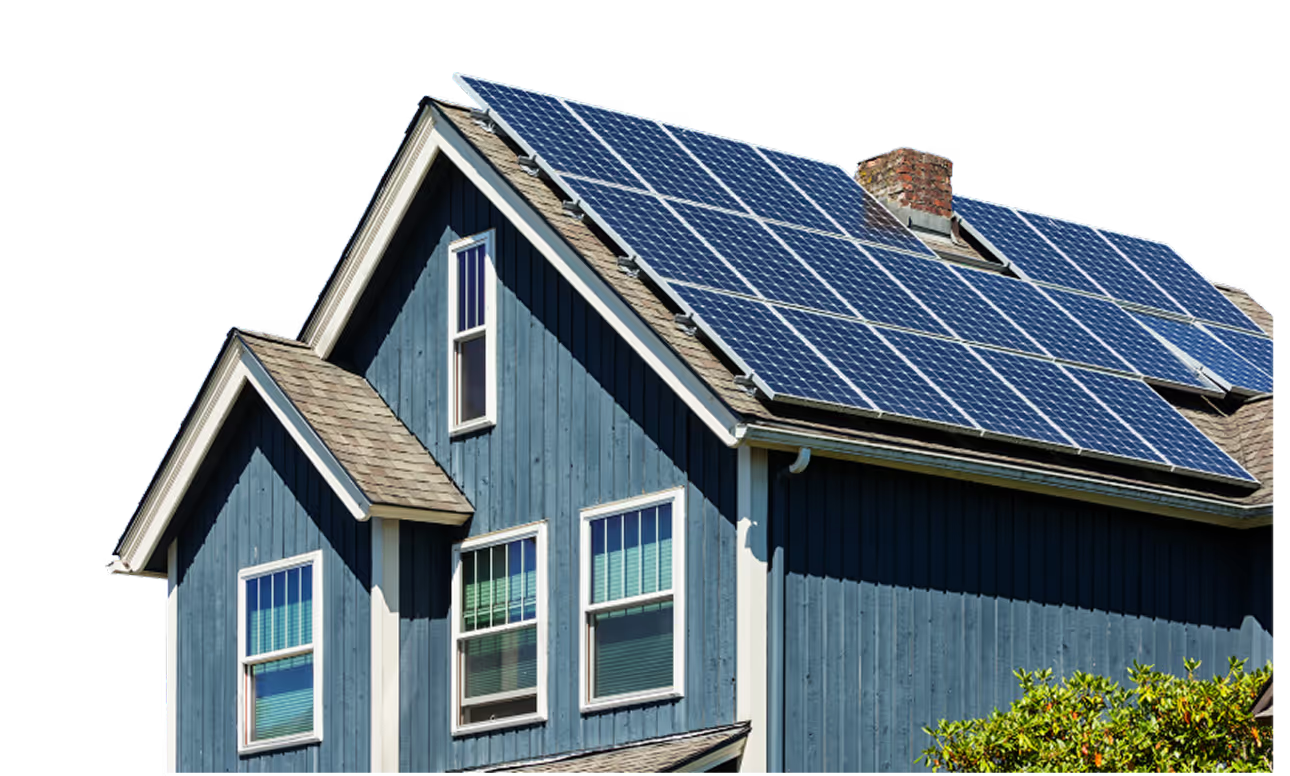
(This article has been updated on Jan, 2026)
Electric cars may still be new in Singapore, but uptake is fast-growing. In the second half of 2021 alone, the number of Electric Vehicles (EVs) have more than doubled, and charging infrastructure is rapidly increasing to encourage this shift. As more drivers consider switching to an electric vehicle, understanding electric vehicle chargers and home charging options becomes increasingly important.
We spoke to Paul Welsford, Vice-President of the Electric Vehicles Association of Singapore, to find out more about EV charging in Singapore.
Electric Car Outlet Requirements
The planned 40,000 installations of public EV charging points will take several years to complete. If you're an EV owner, installing your own home EV charger will save you the hassle of finding a public charging station. This is an option for private landed property or MCSTs (Management Corporation Strata Title) residents.
However, you can’t simply plug an electric car into your normal wall socket. While some overseas markets allow slow charging via a basic 240v outlet, this is not suitable for regular EV use as domestic sockets are not designed to run at maximum current for 8–12 hours straight every day. In Singapore, you’ll also need to engage a Licensed Electrical Worker (LEW) to install and certify your charging station.
Types of EV Chargers
AC vs DC Charging
There are two types of EV charging: Alternating Current (AC) and Direct Current (DC). Without going into technicalities, what you need to know is that AC charging is cheaper but slower than DC. Commercial DC chargers can bring an empty car battery up to 80% charge in as little as half an hour.
AC chargers on the other hand can take around 8 hours for a full charge, varying widely by power. This isn’t really a problem as you generally park your car overnight at home for that long anyway. You also won’t need to charge it everyday as one full battery charge usually lasts at least 300km. That’s about 4-6 times the average daily distance Singaporeans drive. This makes AC the preferred option for home EV chargers, as its the most practical and affordable.
Longer range electric cars boast a range as high as 650km, so you’ll need to charge even less frequently. There are of course, additional factors your battery life is dependent on. If you’re an adrenaline junkie accelerating at every opportunity, expect faster battery drain.
In Singapore, AC and DC plugs are standardised. AC uses Type 2 inlets and DC is predominantly CCS2. This means most electric vehicle chargers are compatible across different car brands, though it’s still important to match the charger to your car’s optimal voltage.
💡Tip
If you have plans to install solar, you can leverage the daytime energy from your solar panels to charge your EV! Electricity generated from solar panels has been proven to be up to 70% cheaper than regular electricity.

Charger Specifications
An EV charger’s kW (kilowatt) rating is a measure of its charging speed. A lower voltage EV home charger has a rating of 7.4 kW and below. Higher voltage chargers are 11 to 22 kW and above, which are suited to full-electric cars with faster speeds.
Usually, homeowners install a wall mounted charging station in their car porch, as opposed to standing, to conserve floor space. Your installer will help you choose the best position for your charger based on your power supply and how you park your car.
Some electric car dealers bundle the car and charging unit installation together. Whether you purchase them together or separately, your best charger is what matches the charging capacity of your car. We’ve compiled a list of popular home charger brands, as well as installers in Singapore below.
Best EV Home Chargers in Singapore
Wallbox
Wallbox’s latest EV home charger is the Pulsar Max. It might be compact, weighing in at just 1.3kg, but it packs a total output of up to 22 kW. These chargers are not only aesthetically pleasing, but can durable for outdoor use with its IK10 protection rating.
Additionally, with the ‘myWallbox’ app, you can schedule your charging sessions to coincide with solar production, helping you avoid high energy tariffs.”


Siemens
Siemens‘ VersiCharge AC charger delivers up to 22 kW for its three-phase series, and 7.4 kW for their single phase series. These chargers are designed to be durable and safe with its IP56 and IK10 protection ratings aswell. This robust charger is suitable for both residential and commercial use, providing efficient and reliable charging solutions for electric vehicles.

EVBox
EVBox offers a range of smart charging solutions. For instance, the EVBox Connect app allows you to monitor and control your charging session remotely. Their EV home charger design, the EVBox Elvi, is offered in charging powers 7.4, 11 and 22 kW. It weighs 3 to 11kg with and without the cable. The EVBox Elvi also boasts a protection rating of IP54 and IK10.

Schneider
Schneider‘s EVlink Smart Wallbox offers versatile charging solutions ranging from 7.4 kW to 22 kW, catering to different electric vehicle (EV) needs. It’s designed with safety and durability in mind, boasting IP54 and IK10 protection ratings. The Smart Wallbox is equipped with smart features for efficient energy management and can be easily integrated into existing electrical systems.

Best EV Home Charger Installers in Singapore
Watt
Watt is a preferred installer of Wallbox. You can try out their Augmented Reality (AR) tool to visualise your new EV charger in your parking space.
EVSE Singapore
EVSE Singapore is part of the Novexx Group of companies, providing integrated engineering solutions. They are a partner installer of EO. At this time of writing, they offer two EO models at 3.6 and 7 kW, retailing for $1,580 and $1,880.
Eigen
Eigen Energy is a systems integrator in renewable energy solutions. Aside from electric vehicle charging infrastructure, they also specialise in solar photovoltaics and battery storage systems.
QuickCharge.sg
QuickCharge.sg covers the design, supply and installation of your EV home charger. Buying and installing their Aurora 7 residential EV charger, offered in 7 to 22 kW, would cost around $2,600 all-in. They even offer owners the opportunity to become Charging Point Operators, making money by selling electricity to drivers.

As more entrants come into the EV charging market, this list will grow and change. For example, Tesla has its own home charging unit which is currently available in Singapore. However, due to local regulations, the Tesla Wall Connector must be purchased and installed by a Tesla Certified Installer to ensure that the installation meets TR25 requirements.
Installation Process
For most landed homes in Singapore, a residential setup functions as a level 2 charging station, also known as level 2 charging. This type of home charging station operates on higher voltage than a standard wall socket, delivering a faster and more stable charging rate that suits daily electric vehicle use.
Step 1: Request Installer Site Evaluation
The installer will assess your distribution board, cable routing and ascertain a suitable location for your charging station. Importantly, they should determine the charging capacity of your home.
Step 2: Select EV Charger and Installer
Your best charger depends on your electric car model’s charging capacity, and that of your home. You should select the recommended charging capacity for your car model and home. Refer to our list above to start off your search.
Step 3: Finalise Design Proposal
Based on your preferences and property layout, your engineer will propose engineering works, application methods, and cable concealment.
If you are representing an MCST property or condominium, you will need to submit an additional construction permit. Private landed properties do not require this. Your installer will assist you with the necessary documentation.
Step 4: Installation Work
Your installer will position your EV charger by drilling and clipping the cable to the wall. While installing and connecting it to your main household supply, the power supply will be briefly turned off. This process will only take a few hours.
Step 5: Licensed Electrical Worker Certify and Hand Over Installation
The LEW brought in must test the safety of and certify the EV charging station, switchboard and wiring. If your home is under an MCST, the building LEW will also need to complete the approval sign off. The charger is now yours, and you should periodically make arrangements to inspect and maintain the charging station.
Cost & Savings Calculation
Installation & Charger Costs
How much does it cost to install your EV home charger in Singapore? A mid-range EV home charger ranges between $1,000 to $2500, to around $4,000 for a station with higher charging capacity. Additional costs for cabling depend on how long you need to pull the cables for the car and charger design.
Electricity Costs Calculation
Now, you might be thinking: with Singapore’s electricity prices going up, how does charging an EV affect your home’s electricity costs? Let’s crunch the numbers.
Electricity consumption varies depending on the car model. Let’s compare two very popular electric and internal combustion engine (ICE) car models. The average annual mileage for cars in Singapore is about 17,500km. Fuel or electricity costs are calculated based on SP Group’s electricity prices ($0.2580/kWh including GST) and average petrol prices ($2.55/l) as of Nov 2021.
The Tesla Model 3, highly popular in Singapore since Q3 2021, is extremely energy efficient. It will cost you about $650 in additional home electricity bills annually. For the typical landed homeowner consuming 1,200 kWh of electricity per month, this means you may be expecting your electricity bills to go up by 20%.
Electricity is still much cheaper than fuel however, which along with government rebates, make getting an EV worth considering. The Toyota Corolla 1.6 Altis, a best-selling ICE car, will cost beyond $2,000 more in fuel costs annually. If cost is your motivation, you should also factor in higher road tax, insurance and COE premiums.
If reducing your carbon footprint is your motivation though, how green will your electric car be?

For the environment, an electric car saves 1.4kg of CO2 emissions per kWh on average. But to really make them zero-emissions, you can make sure they’re drawing on renewable electricity. As a landed property owner, you have the option to make this cleaner choice with solar panels.
Clean Energy – Solar Simulator
Installing solar panels for your home might sound scary, but getting solar is actually very easy! With our solar panel calculator, you can calculate your roof’s solar potential and electricity savings instantly.
Just like electric cars, solar has gotten a lot cheaper in recent years with better technology. As your electricity costs increase dramatically from charging your electric car, solar is a better cost-saving investment than ever. Both let you reduce your carbon footprint significantly and save money in the long run.
Electric vehicles and solar panels – a match made in heaven!

Rent-to-Own Solar for Business with Guaranteed Performance
Immediate ROI




Rent-to-Own Solar. $0 Upfront cost. Guaranteed Savings
(10-Year RTO plan)
+ 10-Year Free Maintenance






%20What%20Happens%20to%20Solar%20Panels%20After%2025%20Years.png)




